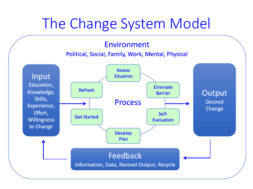
Musings of an Educational Entrepreneur
By Benjamin Franklin
This is a new column that gives educational leaders the opportunity to discuss higher education issues. For more information on how to contribute, contact Jenny Faubert at 920-264-0199 or jfaubert@careereducationreview.net.
Hi, Ben Franklin, here!!!
As a high-minded, hopefully, enlightened, man I must consider the British perspective of our glorious revolution and a similar condescending attitude playing out in 21st century education. The British viewed us colonists as a defiant confederation of self-governing states. They did not recognize us as a centralized state on the European model. Consequently, we were not treated with the same respect as those European nations. Parliament and the Crown treated us as inferior subjects hiding behind their interpretation that the British Constitution proclaimed the colonies as subordinate. Well, obviously it was to their own detriment that the elites of England dismissed the value of their colonies and our rights. Frankly, the cost to the British empire of losing these valuable assets in America proved to be extraordinary.
It is in a similar vein that American academics have treated the career and technical schools of today.
The growth of proprietary colleges and universities during the economic downturn in the last decade has brought the same kind of disdain from education elites as the expansion of the colonies did from the lords and ladies of 18th century England. The colonies were growing at a significant rate at the expense of the mother country. Just as the colonies, for-profit colleges expanded at a rapid rate while the traditional universities were limited by a shrinkage of the tax base.
The fact is that for-profit schools, although severely weakened, survived the brutal assault by the Obama administration. Yet, the loss of the election by left-wing Democrats has not stopped the constant attacks on this capitalist approach to education. Likewise, even though the British lost our revolution, it did not stop in their desire to regain the colonies, hence the War of 1812.
This time around, the left has launched continued attacks against any institution with the audacity to try to escape persecution and become a not-for-profit organization. They are so invested in their ideological assaults on for-profit entities they cannot stand for institutions to become not-for-profit organizations. Led by Bob Shireman, The Century Foundation, Center for American Progress and others, they believe that an institution’s corporate tax status, more specifically a change in that status, is the measure of a quality educational institution. They do not recognize the immense sacrifices by the shareholders of institutions that transition from for-profit to non-profit. Boards of directors make these difficult decisions to surrender millions of dollars of assets, based on the belief that it is worth it for the survival of the school and, more importantly, to lessen the impact on the students who are victims of viral anti-for-profit publicity.
Most of the schools that have made the transition are regionally accredited institutions which are required to have independent boards of trustees and independent decision-making.
The rigid requirements of the regional accreditors do not even address the differences between for-profit and non-profit institutions. They hold all institutions to the same standards.
Nevertheless, these uber-liberals continue to attack private institutions regardless of their new form of control, believing instead that they have escaped the hangman’s noose. They are like the British of old who just refused to believe they could lose the colonies that had escaped their control.
As history has shown, the mistakes of the British led to a great, long-term partnership which gave rise to the free world. Let’s hope that history repeats itself – that when we look back in another 250 years, we will see the significant and positive impact of private sector institutions on American higher education system.






